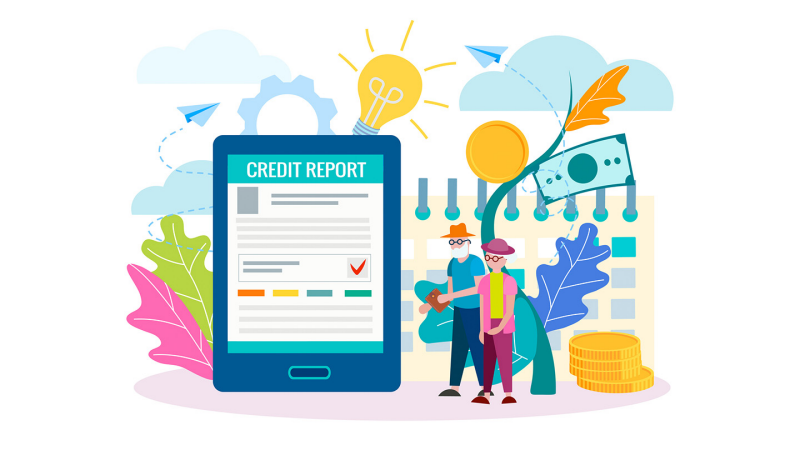Is your credit score included in your credit report?

Quick insights
- Your credit score is generally not featured on your credit report.
- A credit score is a numerical value that is regularly updated while a credit report is a detailed history of your credit accounts.
- You can receive a free copy of your credit report once per year.
Your credit score and credit report might go hand in hand. However, in reality, these are two distinct tools used to report on and measure creditworthiness. Your credit score is actually not listed on your credit report. So how do you get access to both so that you can take action towards building credit? Learn more below.
Credit report vs. credit score
To better understand why your credit score is not featured on your credit report, let’s break down the differences between the two in more detail.
Credit report
This document is a detailed account of your credit history, including accounts that have been closed or opened. Your credit report is provided by the three main credit bureaus — Experian™, Equifax® and TransUnion®. You can also view your credit report provided by Experian when you enroll in Chase Credit Journey®, a free online tool where you can also keep track of your credit score and credit history.
Your credit report contains information including, but not limited to:
- Credit accounts
- Balances due
- Total outstanding debt
- Details of your payment history
- Charge-offs
- Defaults or delinquencies
Remember, your credit report does not include your credit score, which is another important detail of your financial wellness.
Credit score
A credit score is a three-digit numerical snapshot of your financial wellness and captures your level of creditworthiness at a certain point in time. The factors that impact your credit score include, but are not limited to:
- Credit utilization ratio
- Payment history
- Credit mix
- Number of accounts open
- Length of credit history
Your credit score is important because it is typically a dominant factor in determining whether or not you get approved for a loan, higher credit limit and more.
Why is there no credit score on your credit report?
While it might seem slightly illogical that credit scores don't appear on credit reports, there's actually a sound reason for this absence. Credit scores are typically updated more frequently than credit reports, which typically update their information when new information is received, which is usually on a monthly basis but can be up to 45 days. Credit scores provide a more “real-time” capture of your credit health.
Credit reports, on the other hand, are used to look at your long-term history. They show account openings and closures as well as other financial activity, such as bankruptcy or collections.
How can you get your credit score for free?
One way to get your credit score for free is by enrolling in Chase Credit Journey®. This credit score is the VantageScore® 3.0 provided by Experian. This score updates on a regular basis so you can frequently check how you're doing.
Additionally, your bank may provide you with an updated credit score. Using your online banking or mobile platform, you may have access to a credit score for free. Note that each bank and bureau may use a different credit scoring model (for example, VantageScore vs. FICO® Score), so the scores you receive may vary slightly.
How can you get your credit report for free?
You can request a copy of your credit report for free once a year from the main credit bureaus by contacting them by phone or by mail, as you are entitled to it by law. The Federal Trade Commission (FTC) does not recommend that you reach out to them individually, though. Instead you can visit annualcreditreport.com, or use the centralized toll-free telephone number or mailing address.
Keep in mind that you may need to provide important information to verify your identity, including but not limited to:
- Social Security number (SSN)
- Date of birth
- Residential address
In summary
Both your credit report and credit score are important pieces of information to keep track of as you start or continue your financial path. Your credit score, a three-digit number that gives a snapshot of your creditworthiness, and your credit report, a document that lists your credit history, are essential tools in helping you how to understand the impact of your financial behavior.
Knowing how to access your credit score and credit report (and without cost) is a great step towards improving your financial understanding.



